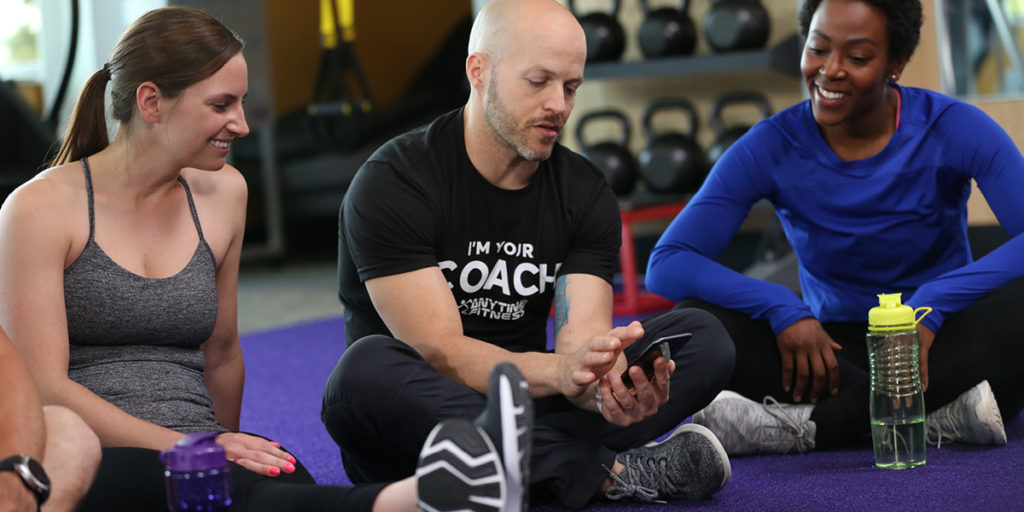We hear it all the time as coaches: the stories you share with us about starting and stopping, the tales of disappointment and defeat that follow you like a dark cloud into new adventures. Before you even embark on a new health journey, you believe that this will be just like last time, another thing to add to the list of uncompleted goals and dreams for a better you. What’s worse is sometimes even when you try to set yourself up for success with accountability, you simultaneously beat yourself up for not being able to reach your goal on your own. Whoa, that is heavy, but so very common that we need to address this and understand how to take the shame, guilt, and self-sabotage out of needing accountability for success.
The Shame Monster
Who is the shame monster, you ask? You know, that voice that tells you something is wrong with you. It tells you that you are worthless and incapable of doing anything without deadlines. It tells you that you don’t possess the internal drive to do anything on your own. It makes you feel like you are just missing something that every other person has, and you will never get what you want because you are incomplete or broken. You know the stories. You know the pain.
But what if we flipped the script on shame and used it to our advantage? What if we said, “You are right, shame, I DO need accountability. So what?” You know that channeling accountability unlocks your motivational SUPERPOWERS. With it, you are set for success to accomplish your goals. So, listen up shame, we have you figured out and your sad story isn’t our truth. We aren’t afraid to tell you that you are right and use that to our advantage.
You Are Not Alone
Did you know that nearly half the population also THRIVES on accountability? That’s right, you’re in good company. If everyone possessed the knowledge and motivation internally, there wouldn’t be challenges, events, or appointments to help you reach your goals. More and more, the health and wellness industry is recognizing the need to tailor motivational messages and is seeing the benefits in patient and client compliance.
In her book “The Four Tendencies,” Gretchen Rubin refers to those who thrive on accountability as “obligers.” Often obligers can get caught in a cycle of putting everyone else’s needs first and burn out their motivation before they even get to taking care of themselves. They are easy targets to take advantage of in the workplace because in addition to struggling to establish boundaries, they thrive on doing what others want! If that is you and you want to stop the cycle and learn some ways to establish deep long-lasting motivation, then read on. Learning more about what it means to be someone who benefits from setting up external motivators can help you to dig deeper into motivation stimulators.
Finding Your Motivation
Common methods of creating accountability:
- Challenges and Contests
- Events with Deadlines
- Getting a buddy to join you in the gym
- Scheduling Appointments
- Paying for Services
These strategies are effective: that’s why you likely have experienced some success in the past when you’ve implemented them. However, you may consider going a step further to find your motivation by exploring your personal values and needs. This method can help anyone work toward creating lasting accountability to themselves. The following exercise will help you discover what is most important to you and will spark the lasting motivation that comes from understanding who you are, what you believe in, and what matters most to you.
The following questions will help you explore what naturally motivates and inspires you.
- Who am I? What are characteristics that define me?
- What do I believe about myself and my health?
- What matters most to me? What are my priorities?
After exploring your values and needs, work on attaching them to your goals. You can do this simply by making sure that what you choose to do, dream of, and work for reinforces those values. For instance, if you value family and connection, and believe that a good parent is a healthy one, then perhaps you make regular family bike rides a goal! Another example is if you value serving the community and it’s important to you to feel great, then you could participate and volunteer at local food shelters or activity-based fundraisers. Ultimately, you should aim to choose fulfilling goals and activities. Once you know what those are, find a way to keep those goals and values top of mind by writing them down, putting them in a location that you can see, or sharing them with a friend. You can do this!



